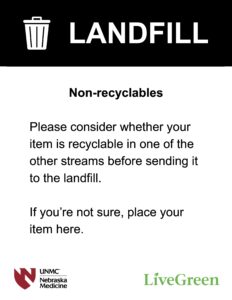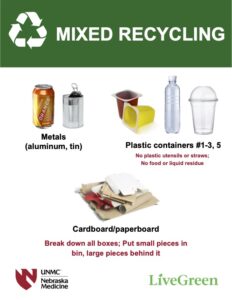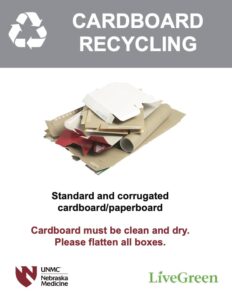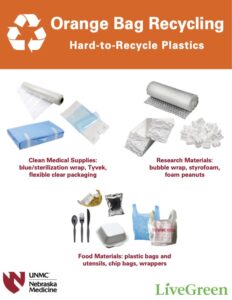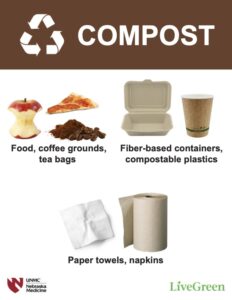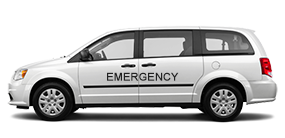Zero Waste Event Toolkit
Do you want to host a Zero Waste Event on campus? LiveGreen is here to help you make your event successful!
A Zero Waste Event has at least 90% (by weight, not by volume) of all the material at that event being reused, recycled, or composted. A maximum of 10% can go to the landfill.
Remember to Reduce, Reuse, and Recycle, in that order
Best option: Reduce. Use reusable plates, serving dishes, beverage carafes, utensils, cups, table settings, and cloth napkins.
Good Option: Compost. Reusables not an option? Use compostable (not biodegradable) plates, serving dishes, utensils, cups, table settings, and napkins.
Acceptable Option: Recycle. Buy items that are easily recyclable in your area–generally glass, metal, and #1 and #2 plastics. Avoid plastics if at all possible.
Worst Option: Landfill. Avoid purchasing items that don’t fit into the categories above. This is likely styrofoam (don’t do that, it is bad for your health!) and other-numbered plastics.
Planning:
The key to success is good planning. Consider everything that will be brought to your event, so you can plan for disposal. This is where the ‘reduce’ part of the equation is so important. The less you bring in, the less that has to go out. Don’t provide printed agendas/notes unless you absolutely have to—many people won’t use them anyway. Instead of buying bottled water, get a carafe. Tell people what they are responsible for—their own cup/bottle, a laptop or notebook, etc.
Don’t forget to consider the packaging—if you order a case of bottled water (but don’t do that!) it will likely come in a cardboard frame, and plastic wrapping, both of which have to be dealt with—not just the bottle.
Hard plastic can be recycled, but the production is hazardous and recycling is fairly inefficient. Consider other options. Compostable cups are better than recyclable.
Make sure everyone involved in planning the event is on board and knows the plan so they can look for easily missed items. Those individuals attending the event should know all the details so they can help attendees when questions come up.
Depending on the event, you will need a mixed recycling bin for metal/plastic/cardboard (potentially a paper recycling bin) a container for compost, and probably a trash can.
You can also use a Hefty ReNew™ Program orange bag to collect soft plastics and other hard to recycle plastic items such as plastic utensils, straws, chip bags and foam packaging and many other items – check the list of acceptable items here. After the event the orange bag(s) can be placed in the mixed recycling bins on campus and will eventually end up at the Firstar Fiber’s material recovery facility (MRF) where it will be pelletized and made into plastic lumber, and decking material.
If you are serving food, you will likely have some food waste. Compost bins can be delivered from Hillside Solutions (only composting option in Omaha at this time), or you can collect the material in a compostable bag and someone can drive it to a collection site in town (closest is downtown) for a one-time fee. LiveGreen is working on changes to make this easier for you, we’ll update you as soon as that happens.
At the Event:
Group your bins; attendees should be able to go to 1 place and sort all their waste. If trash cans already exist in the space, add recycling bins, compost bins, etc. to each one or temporarily remove the trash can to avoid confusion (don’t forget to put it back!). The more people you have attending and the more ways to get in and out of a space means you will need more waste stations. Make it easy for them!
If you have others helping facilitate your event, make sure they know the plan so they can be helpful to your attendees.
Make sure to appropriately communicate the details to the attendees. Make an announcement at the beginning of the day, as food is served, etc. If you are using a PowerPoint or some other visual, create a slide(s) that shows what items go into what bins. You can have this on the screen while people come in, and again at the end of the presentation. Provide motivation! Not only does this help to achieve the campus Zero Waste goal, it’s improving air quality in Omaha (which reduces asthma attacks, ER visits, etc.) and also helps to achieve our mission of creating a healthy future for all. If your group has a specific purpose, tie the outcome to that purpose for additional motivation.
Have signage for them to explain what items go where. You can use the downloadable signs below.
After the Event:
Gather up the materials from all your stations and group like items. If you don’t have any trash, congratulations, you threw a zero-waste event! If you do have some trash, you technically need to weigh it to know if you are zero-waste. That’s not likely possible, so you’ll have to guesstimate—if the trash only has some soft plastic in it, you are probably fine. If it has food (which is pretty heavy) you might not be. If Hillside Solutions is picking up your composting, they can weigh everything for you but need to know that in advance.
If you have bins that are contaminated, recyclables mixed with food waste, landfill items in the recycling bin, etc., you will either need to sort it by hand to clean up the stream or send it to the landfill. Contamination means the compost facility or recycling facility will have to send it to the landfill and you will not have a zero-waste event. Don’t be a wish-cycler.
You don’t want to be in this situation, so make sure to focus on planning and communication so you don’t have to worry about it.
Provide feedback; tell the attendees how they did and how this helped. If your items did get weighed, share that too—it’s always surprising how much waste can come from a single event.
Additional Help:
- Start small! Can you make your office meeting zero waste? Or a lunch and learn?
- Purchasing is key—make sure you know what kind of containers your caterer is bringing, and work to get the best options. Many of us do the same thing on repeat until somebody asks us to do something differently—maybe you can drive change elsewhere! Try to reduce odd items or items that you don’t know how to dispose of. To be truly zero-waste, any waste that went into prepping for your event counts too. Ask your caterer if they are composting and recycling at their facility.
- You can do this at home too—throw a zero-waste football party, birthday party, or holiday. It is good practice, and family may be more likely to ask questions so you know what to expect—plus you’ll save yourself money!
- Still have questions? Email LiveGreen@unmc.edu
Signage to post on bins:
Mixed Recycling – Download PDF
Cardboard Recycling – Download PDF
Orange Bag Recycling – Download PDF
Compost Recycling – Download PDF
For questions about mixed recycling on campus, please contact Rick Boldt at recycling@unmc.edu.

